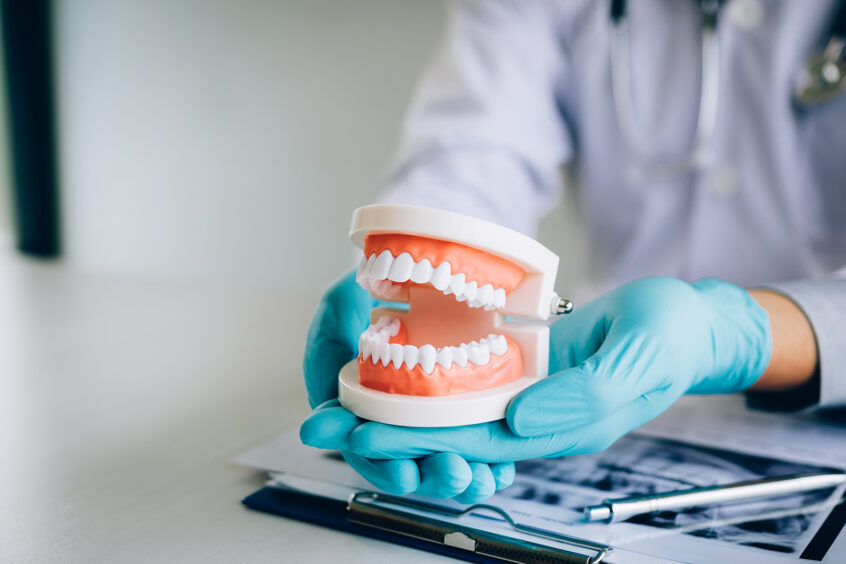Open Up and Say, “…aaahhhh…”
Oral Signs of Health Concerns
Kari Collett, RDN, LDN, CLT with A to Zinc Nutrition, LLC
You may have heard that the mouth is a “window into the gut.” What it means is that your oral cavity is a reflection of how your immune system is functioning, as the gut is where most of your immune system resides. Looking into the mouth can give providers such as dentists, dietitians, and others an indication of various health conditions.
While most dentists are trained to look for signs of diseases in the mouth, they rarely discuss these concerns with their patients. It’s time consuming, and most dentists prefer to leave non-oral health issues in the hands of medical doctors. Additionally, insurance reimbursement gets a little tricky when too many topics are covered in one office visit.
If you want this kind of information from your dentist, you’ll likely have to ask.
Bad Breath
Halitosis, the official term for bad breath, is not caused by what most of us think: brushing neglect. It can actually be a sign of something much more serious: bacterial or fungal infection in any part of the digestive tract. Generally called dysbiosis, this condition should not go unaddressed, or the consequences could be significant with long-term damage to the gut that can lead to immune disorders.
Interestingly, bad breath could also be a sign of heartburn. Wouldn’t a person know if he/she has heartburn? Not always. Many signs of heartburn do not present themselves with the typical burning sensation in the chest.
Loss of Taste and Smell
Any time we lose our sense of smell, we lose about 80% of our ability to taste. COVID aside, a decreased sense of smell could be early signs of Alzheimer’s or Parkinson’s diseases. A decreased sense of taste indicates a generally weakened immune system. This could be due to various types of allergies or deficiencies in zinc, vitamin A, and/or vitamin B12.
Technically, we could live without these senses if needed, but keep in mind taste and smell are primary drivers for our desire for food. Without these pleasures, we may find it difficult to keep up an appetite which can lead to devasting weight loss – especially in elderly people.
Red and Swollen Gums
Anyone with periodontal disease doubles their risk of heart disease. With heart disease being the number one cause of death in the US, it’s worth taking the time to make sure your gums are healthy. This is where good oral health matters: brush and floss twice daily and see your dentist twice per year.
This disease is also painful and increases the chance that one day you may loose your teeth. The inflammation on the gums goes beyond the surface level and into the jawbone which holds your teeth in place. Yikes.
General Oral Recommendations
If someone looked into your health window, what would they see? If you have fillings, have your dentist or doctor inform you of the type you have and the pros and cons to your health. Do you have a dentist that evaluates you as a whole person? Consider one that practices under a holistic perspective. But do your homework in that area as well. Any dentist can register with a “natural” database, but do they practice under those guidelines? But the most effective way to optimize oral health is to practice prevention.
Prevention
In addition to the standard brushing and flossing recommendations, diet and nutrients play a critical role in keeping your immune system in top shape. A to Zinc Nutrition specializes in reducing inflammation with foods and nutrients unique to individuals!
To learn more about optimizing your health, schedule a free Discovery Call: https://atozincnutrition.com/schedule/
Kari Collett, RDN, LDN, CLT with A to Zinc Nutrition, LLC
For a printable PDF, click here.

